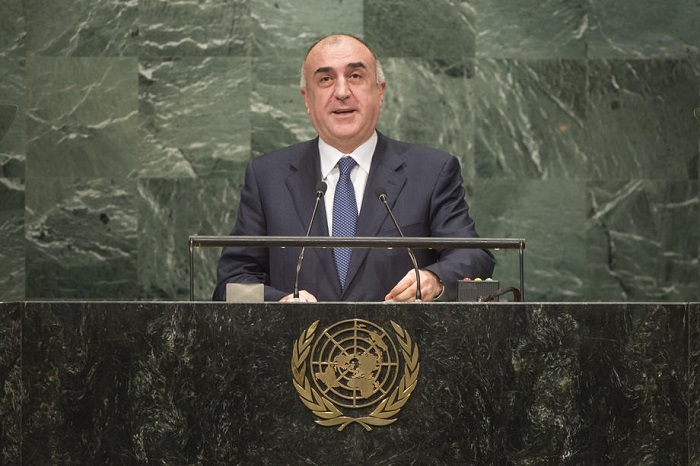The minister made the remarks during a joint press conference with his Georgian counterpart Tamar Beruchashvili in Tbilisi.
Azerbaijani foreign minister has arrived in Georgia on a two-day visit. He is scheduled to meet Georgian President Giorgi Margvelashvili and Prime Minister Irakli Garibashvili.
During the joint press conference, Mammadyarov said that aside from the traditional energy projects, the two sides also cooperate in the joint implementation of the project for construction of BTK railway.
Mammadyarov said that BTK is a geostrategic project.
“We believe that Central Asian countries, Afghanistan will show interest in this project.”
Azerbaijani foreign minister added that alongside with economic benefits, BTK project will bring peace and stability to the region.
Furthermore, Mammadyarov said that Azerbaijani gas will be transported to Europe in 2018-2019 through Georgia’s territory as well, adding that Georgia and Azerbaijan closely cooperate in this sphere as on the international arena and in the international organizations.
Baku-Tbilisi-Kars railway is being constructed on the basis of the Georgian-Azerbaijani-Turkish intergovernmental agreement.
The State Oil Fund of the Republic of Azerbaijan (SOFAZ) finances the project in accordance with the Azerbaijani president’s decree `On the implementation of the Baku-Tbilisi-Kars project activities` dated February 21, 2007.
A new 105-kilometer branch of the railroad is being constructed as part of the Baku-Tbilisi-Kars project. In addition, the railway`s Akhalkalaki-Marabda-Tbilisi section is under reconstruction in Georgia that will increase its capacity to 15 million metric tons of cargo per year. A depot is under construction in Akhalkalaki for the transition of trains from the existing tracks in Georgia to the European ones.
It is planned to complete the implementation of the project in 2015.
The peak capacity of the corridor will be 17 million metric tons of cargo per year. At the initial stage, this figure will be equal to one million passengers and 6.5 million metric tons of cargo.
More about:















































